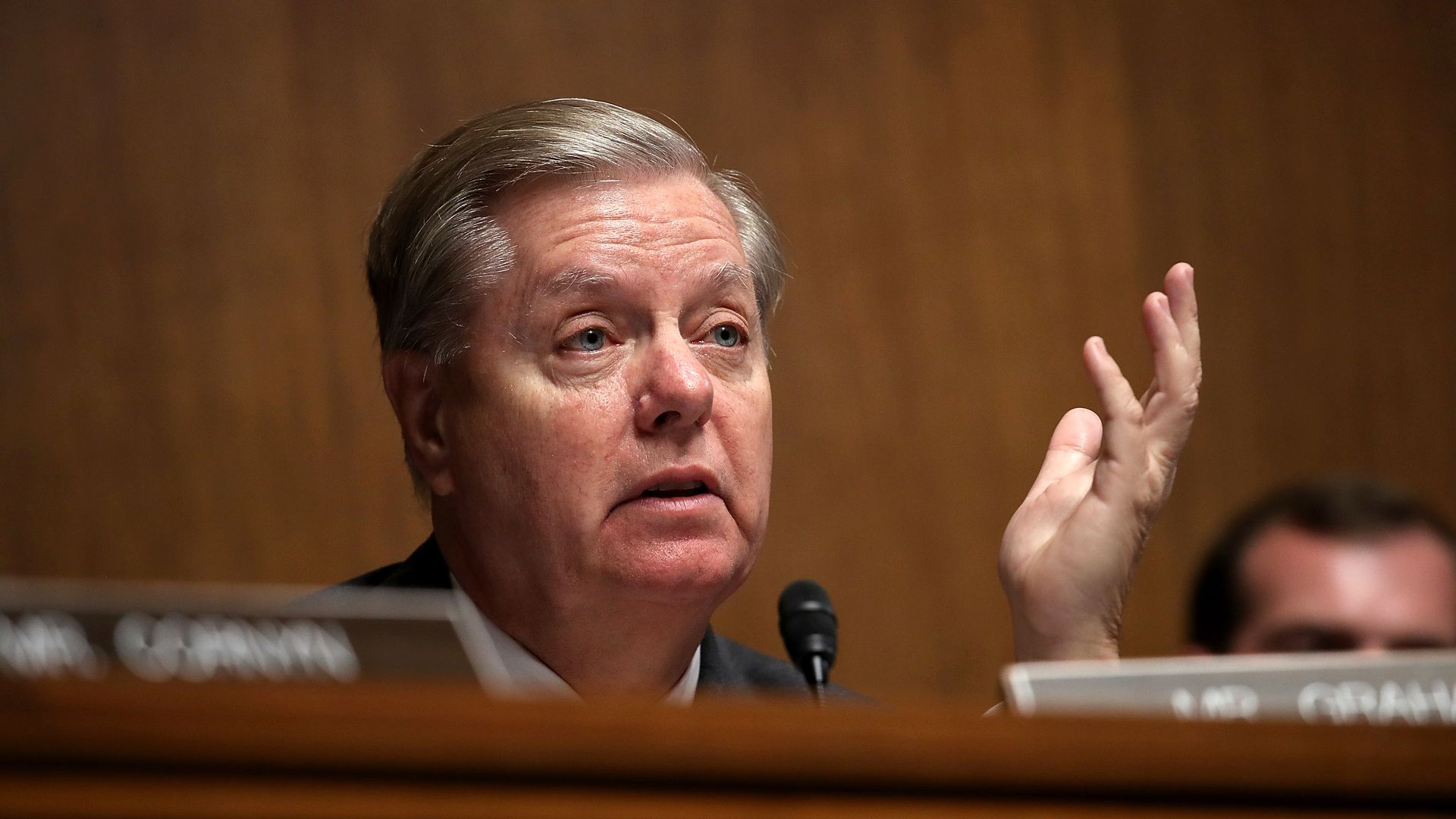Graham says he has "different view" of SCOTUS confirmations after Kavanaugh
Add Axios as your preferred source to
see more of our stories on Google.

Photo: Win McNamee/Getty Images
Senate Judiciary Chairman Lindsey Graham (R-S.C.) said in a letter to his Democratic colleagues on Monday he has a "different view" of the judicial confirmation process "after the treatment of Justice Kavanaugh" during his 2018 confirmation fight.
Why it matters: Graham opposed holding a vote President Obama's nomination of Merrick Garland following Justice Antonin Scalia's death in 2016, arguing that voters should get to decide in the next election who is appointed to the court.
- “I want you to use my words against me," Graham said at the time. "If there’s a Republican president in 2016 and a vacancy occurs in the last year of the first term, you can say Lindsey Graham said let’s let the next president, whoever it might be, make that nomination."
- He repeated in an Oct. 3, 2018 interview with The Atlantic: "If an opening comes in the last year of President Trump's term and the primary process has started, we'll wait until the next election. ... Hold the tape."
Yes, but: Graham argued that circumstances have changed since the Scalia vacancy because the Republican-controlled Senate at the time had been elected because it "committed to checking and balancing the end of President Obama's lame duck presidency."
- The current Republican majority, which expanded after the 2018 midterm elections, has "committed to confirming President Trump's excellent judicial nominees," Graham wrote.
- "We followed the precedent that the Senate has followed for 140 years: since the 1880s, no Senate has confirmed an opposite-party president's Supreme Court nominee during an election year."
- Graham added: "[A]fter the treatment of Justice Kavanaugh, I now have a different view of the Supreme Court nomination process. ... [I]t's clear that there already is one set of rules for a Republican president and one set of rules for a Democrat president."
